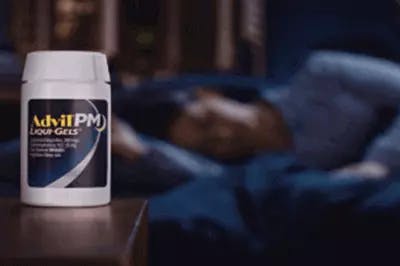How to Deal with Stress-Induced Insomnia
Missing just one night of sleep is hard enough to deal with, let alone struggling with a lack of adequate sleep night after night. However, more than 40 million Americans suffer from chronic, long-term sleep disorders and an additional 20 million have sleeping problems occasionally, according to the National Institutes of Health.i That's a lot of people!
It's not simple to say that there is one definitive cause to insomnia. Everyone is different and has different causes keeping them from sleep. However, stress and insomnia can often go hand-in-hand. Lack of sleep can cause anxiety and research shows that people with chronic insomnia are at high risk of developing anxiety disorders.ii
- There are several health risks that come into play when you're dealing with lack of sleep. It goes beyond just feeling tired in the morning when you're not getting any of the c. Lack of sleep can lead to issues at school, at work, and in your social life, as well as heightening your risk of injury and health problems. Those with sleep disorders are additionally at risk for heart conditions, high blood pressure, obesity, and diabetes.iii
What is Stress-Induced Insomnia?
Stress-induced insomnia is where your levels of stress and anxiety keep you from sleeping. If your sleeping problems start during times of high stress levels and anxiety, it can be a sign that your insomnia is tied to your stress levels.iv To be officially diagnosed with insomnia, you have to talk to a doctor who will ask you a number of questions and may have you fill out a sleep diary.
Ways to Decrease Insomnia Caused by Stress
While both insomnia and stress can seem like insurmountable issues, you can try different methods to help yourself get sleep. Several ways to address your stress and insomnia include:v
See a doctor and/or psychiatrist
Make an appointment with a doctor if insomnia and sleep are effecting your everyday life. Doctors can check for any underlying issues and a psychiatrist or therapist can help manage your stress levels.
Try relaxation techniques
Practice relaxation techniques to manage stress that's keeping you from sleep. Look into methods like meditation, deep breathing, and progressive muscle relaxation.
Practice good sleep hygiene
This method doesn't refer to actual bodily hygiene but the habits and routines that effect your ability to sleep well. Doing things like keeping your room dark, making a bedtime routine, and staying away from caffeine around bedtime are good sleep hygiene practices.
Exercise
Getting some form of daily exercise can reduce stress and make it easier to sleep. It can include moderate consistent exercise as simple as a long walk with your dog.
Resolving stress-induced insomnia can be difficult, especially if you have a lot of stressors where you live or in your personal life. Dealing with insomnia or stress is often a journey and not a simple one-stop fix. No one is perfect, but you can make progress in time! Don't be afraid to try different things to manage your stress-induced insomnia and reach out to family, friends or a medical professional if you need help.
SOURCES
By clicking any of the links below you will be taken to an external website that is independently operated and not managed by GSK. GSK assumes no responsibility for the content on the website. If you do not wish to leave this website, do not click on the links below.
i. Sleep Disorders. Anxiety and Depression Association of America. https://adaa.org/understanding-anxiety/related-illnesses/sleep-disorders. Accessed 5/7/2020. Referenced text is highlighted on page 1 in source PDF.
ii. Sleep Disorders. Anxiety and Depression Association of America. https://adaa.org/understanding-anxiety/related-illnesses/sleep-disorders Accessed 5/7/2020. Referenced text is highlighted on page 2 in source PDF.
iii. Sleep Disorders. Anxiety and Depression Association of America. https://adaa.org/understanding-anxiety/related-illnesses/sleep-disorders Accessed 5/7/2020. Referenced text is highlighted on page 2 in source PDF.
iv. Stress and Insomnia. National Sleep Foundation. https://www.sleepfoundation.org/articles/stress-and-insomnia. Accessed 5/7/2020. Referenced text highlighted on page 8 in source PDF.
v. Stress and Insomnia. National Sleep Foundation. https://www.sleepfoundation.org/articles/stress-and-insomnia. Accessed 5/7/2020. Referenced text is highlighted on pages 8-10 in source PDF.
By clicking the link(s) above, you will be taken to an external website that is independently operated and not managed by Haleon. Haleon assumes no responsibility for the content on the website. If you do not wish to leave this website, do not click on the links above.








.jpg?auto=format)